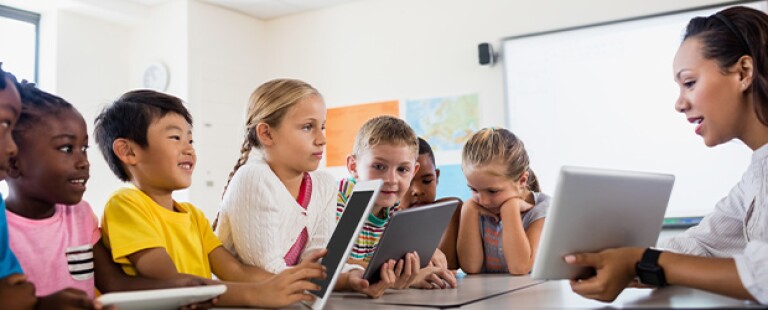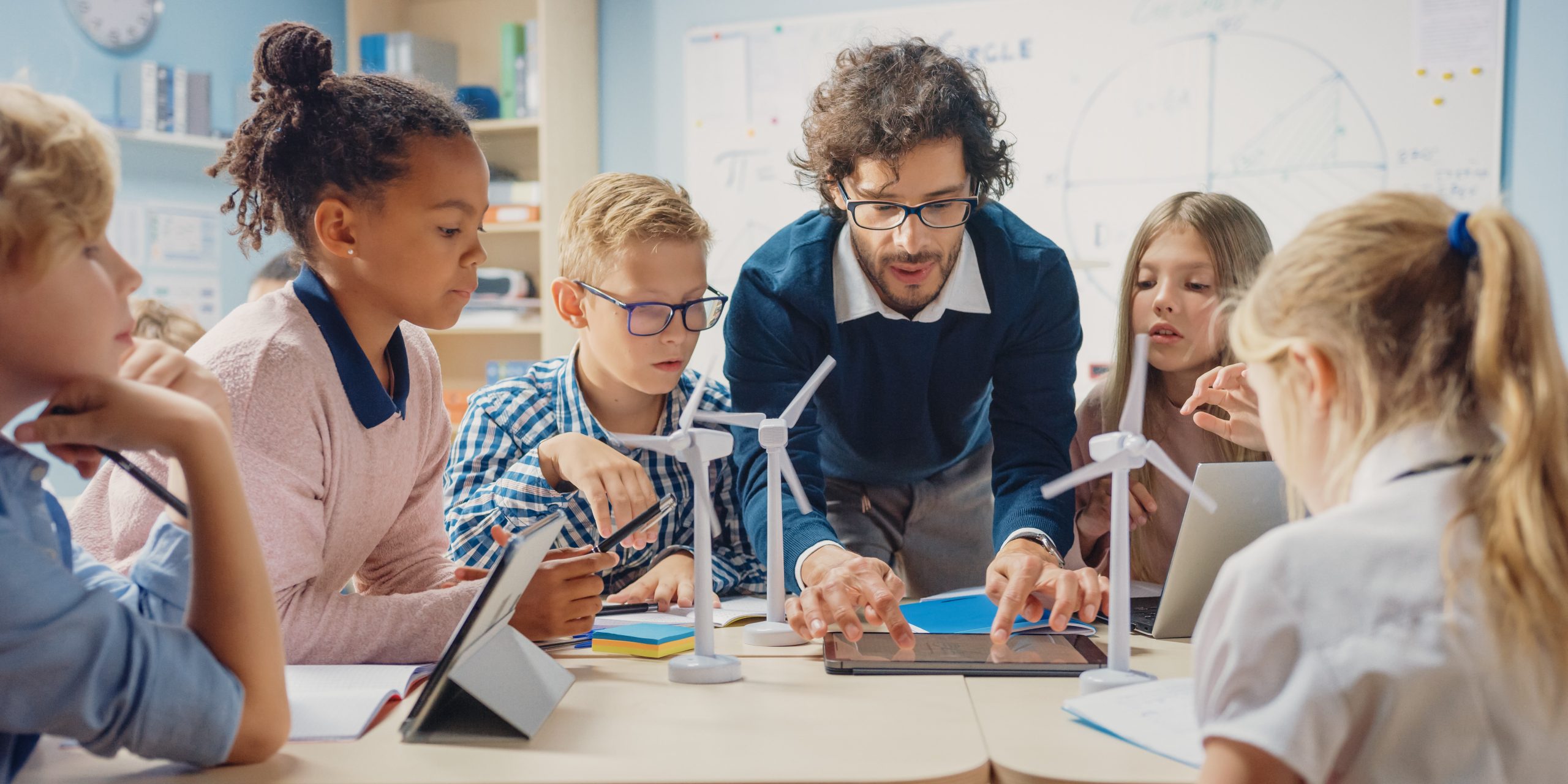Boost Your Child’s Confidence with Primary Science Tuition Singapore
Boost Your Child’s Confidence with Primary Science Tuition Singapore
Blog Article
Discovering the Different Mentor Strategies in Main Science Education Today
Inquiry-based understanding, hands-on experiments, and the combination of modern technology are redefining exactly how educators engage young minds. Additionally, joint approaches and differentiated instruction are being employed to provide to the diverse needs of students, boosting both engagement and understanding.
Inquiry-Based Learning
Inquiry-Based Learning (IBL) is an instructional strategy that motivates pupils to discover clinical ideas through wondering about, investigation, and hands-on experimentation. This technique emphasizes the duty of students as active participants in their knowing, promoting vital reasoning and analytic skills. By involving with real-world inquiries, pupils end up being inspired and interested, which improves their understanding of clinical concepts.
In IBL, educators serve as facilitators, leading trainees as they browse their queries as opposed to delivering details straight. This student-centered technique enables for differentiation, suiting different discovering designs and speeds. Students establish abilities in developing hypotheses, creating experiments, and assessing information, which are important for scientific literacy.
Additionally, IBL cultivates collaboration amongst students, motivating them to share ideas and searchings for. This collective inquiry promotes social skills and a feeling of area within the classroom. Furthermore, the process of inquiry urges resilience, as pupils learn to accept failing as a stepping stone towards understanding.
Hands-On Experiments
Hands-on experiments are a crucial component of effective scientific research education and learning, matching the principles of inquiry-based understanding. These experiments permit students to engage straight with scientific ideas, fostering a deeper understanding through experiential learning. By manipulating materials and observing results, young students can realize abstract concepts in tangible methods.
Such activities promote crucial thinking and analytical skills, as trainees assume end results, conduct experiments, and evaluate outcomes. This procedure motivates them to ask inquiries, improve their understanding, and develop a clinical frame of mind. Moreover, hands-on experiments can be tailored to varied knowing styles, making certain that all trainees have the possibility to involve meaningfully with the web content.
Additionally, hands-on experiments frequently motivate partnership amongst peers, promoting teamwork and communication abilities. Working in teams makes it possible for students to share ideas, go over searchings for, and discover from one an additional, which improves their overall instructional experience.
Including hands-on experiments right into the key scientific research curriculum not only enriches the discovering atmosphere yet also grows a long-lasting interest in scientific research. By actively taking part in their education and learning, pupils are extra most likely to create a passion for clinical questions that prolongs beyond the classroom.

Technology Assimilation
Incorporating technology right into main scientific research education and learning has actually become increasingly vital in cultivating trainee engagement and improving discovering results. The usage of electronic tools, such as interactive simulations, digital laboratories, and educational software application, supplies trainees with possibilities to explore scientific ideas in cutting-edge ways. These resources help with a deeper understanding of intricate subjects by permitting students to visualize and manipulate variables that would certainly be impractical in a traditional class Learn More setting.
Additionally, innovation integration urges personalized learning experiences. Students can advance at their very own pace, taking another look at tough concepts through multimedia resources, which accommodate various understanding styles. This versatility not only supports specific development but likewise cultivates a sense of freedom in students.
In addition, technology offers as a bridge to real-world science, connecting students with present research study and expert payments. Access to online data sources and clinical journals widens students' viewpoints on clinical inquiry and fosters critical believing abilities.
Collaborative Learning
Collaborative learning plays a vital function in main science education and learning by fostering team effort and interaction abilities amongst students. This method urges students to interact, share expertise, and take part in analytical, which boosts their understanding of scientific ideas. By taking part in team activities, trainees find out to verbalize their concepts, listen to varied viewpoints, and work out remedies, every one of which are vital abilities in both real-world and academic contexts.

Research suggests that collaborative understanding can result in increased inspiration and engagement in scientific research subjects, as pupils discover enjoyment in common experiences (primary science her latest blog tuition Singapore). Furthermore, this approach prepares pupils for future joint undertakings, outfitting them with the skills needed for efficient synergy in college and specialist atmospheres. Eventually, accepting collective learning in main scientific research education can dramatically enrich the discovering experience and advertise a deeper understanding of scientific query
Set Apart Instruction

Distinguished guideline can show up in various means, such as varying the web content, processes, or items of discovering. For example, teachers may utilize tiered assignments that offer varying degrees of intricacy, allowing students to operate at their corresponding readiness degrees. Furthermore, flexible organizing approaches can promote cooperation among students with different capacities, promoting peer knowing.
Assessment plays an important function in this method, as it informs guideline and aids instructors recognize each trainee's distinct needs. Formative analyses, such as observations and tests, can assist teachers in readjusting their techniques to improve finding out results. primary science tuition Singapore. Ultimately, by applying separated instruction in key science education and learning, educators can grow a much more reliable and equitable understanding atmosphere, encouraging all students to reach their complete potential in comprehending clinical phenomena
Verdict
In summary, the varied training methods in primary scientific research education and learning, consisting of inquiry-based discovering, hands-on experiments, technology combination, collaborative understanding, and separated instruction, jointly add to an extra effective knowing setting. These methods promote vital reasoning, problem-solving skills, and a deeper comprehension of scientific ideas. By applying these strategies, teachers can produce encouraging and engaging classrooms that read this article address the varied needs of students, ultimately promoting a lifelong rate of interest in scientific research and improving scholastic accomplishment.
Inquiry-Based Understanding (IBL) is a pedagogical method that motivates students to check out scientific ideas via questioning, investigation, and hands-on trial and error.Collaborative learning plays an essential duty in key scientific research education and learning by promoting teamwork and communication abilities among students.Research shows that collective knowing can lead to enhanced motivation and engagement in scientific research topics, as trainees find satisfaction in common experiences.In cultivating a comprehensive knowing environment, distinguished instruction arises as a crucial method to fit the diverse demands and capacities of pupils in primary scientific research education. Ultimately, by applying separated instruction in key scientific research education, instructors can cultivate an extra equitable and effective understanding environment, equipping all students to reach their complete possibility in recognizing scientific phenomena.
Report this page